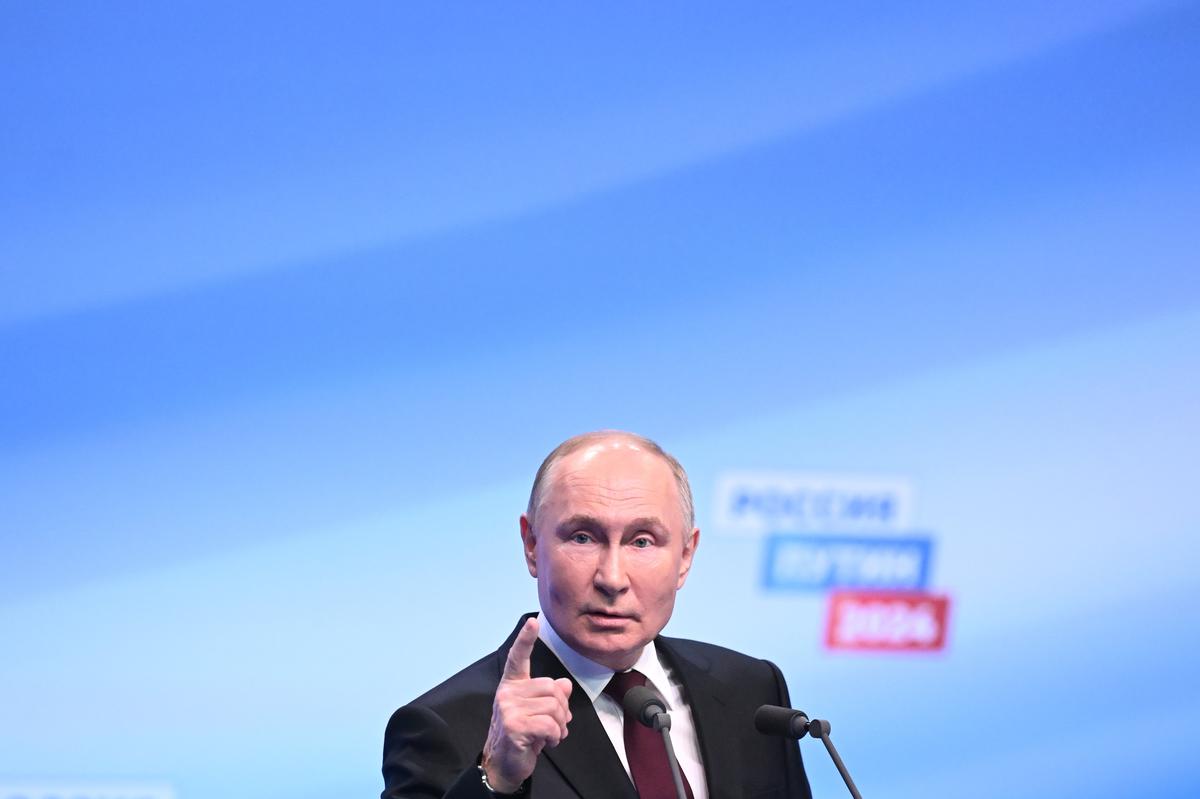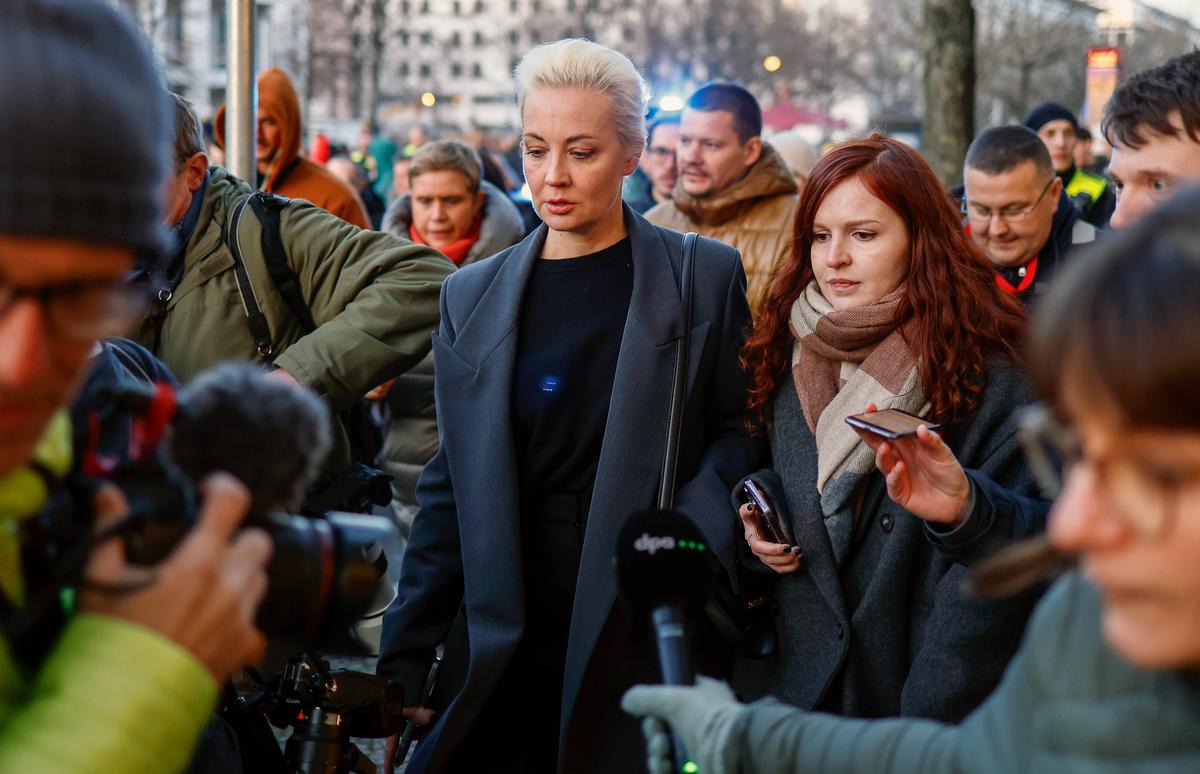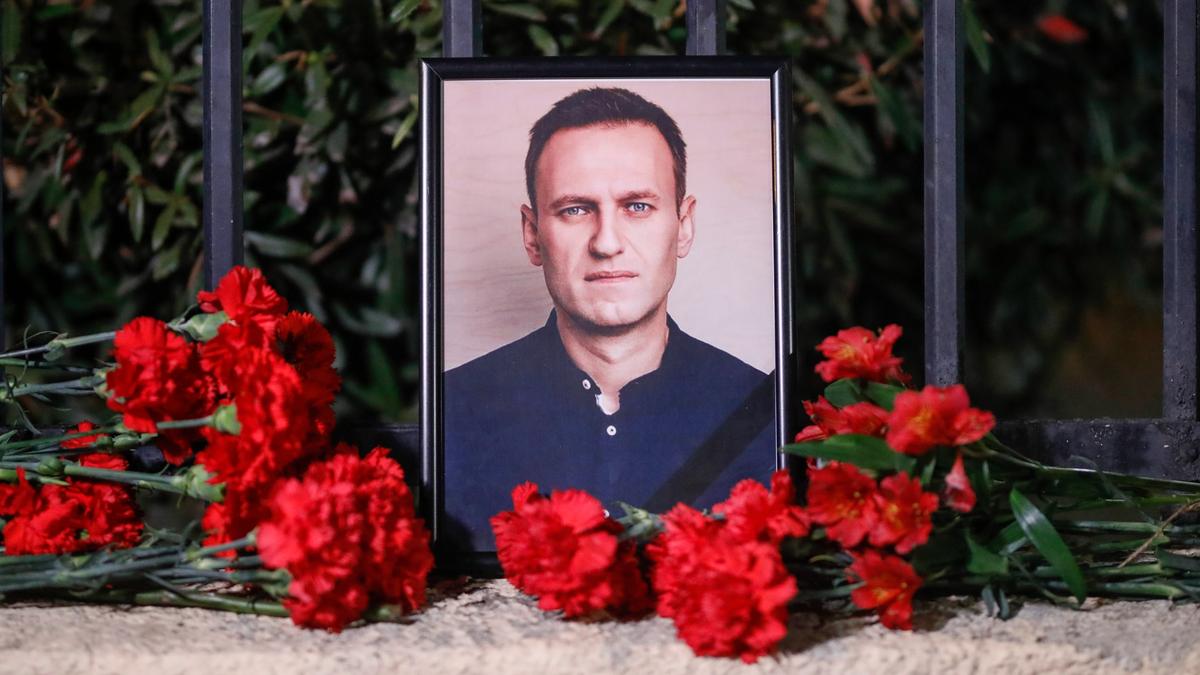After years of refusing to mention his most ardent critic by name, preferring instead to use oblique terms such as “this gentleman” or “this poor excuse for a politician”, Russian President Vladimir Putin finally spoke Alexey Navalny’s name out loud at a post-election press conference in Moscow on Sunday night. Calling his death in prison “a sad event”, Putin claimed to have approved a prisoner swap that would have included Navalny shortly before his sudden demise.
Novaya Gazeta Europe asked exiled Russian political journalist Farida Rustamova, who runs the influential Faridaily Telegram channel, what might have caused Putin to use his enemy’s name now, and in what other ways the Russian political landscape could be affected by Navalny’s death.
NGE: Why do you think Putin has avoided saying Navalny’s name for so long?
FR: Unfortunately we have monitored Putin’s behaviour for a long time and we have learned to understand his psychological quirks well. Vladimir Putin never called Navalny by his name, never acknowledged his existence, to avoid giving him importance. As Foreign Minister Sergey Lavrov said, Putin thinks of himself as one of the great Russian rulers like Peter the Great. He just thought that Navalny — or, as he called him, “this citizen” or “the Berlin patient” — wasn’t on Putin’s level.
The fact that Putin only decided to say Navalny’s name out loud after his death is actually very curious. I honestly thought he would never say it, or at least wouldn’t do it anytime soon. Apparently he no longer sees Navalny as a threat, and so he’s not scared of elevating him to his own level, as the man’s already dead.

Putin speaking at a press conference in Moscow following the election results on 18 March 2024. Photo: EPA-EFE / NATALIA KOLESNIKOVA / POOL
NGE: Other Russian officials also tended to avoid saying Alexey Navalny’s name. Was it their way of supporting the president?
FR: I think so. They don’t want to stand out, so they’re imitating Putin to follow the trend set by “the boss”.
NGE: Why did Putin choose the post-election press conference to acknowledge Navalny?
FR: I think it’s important to mention that in earlier years, during the 2018 election, for example, the Kremlin press service was somewhat more open, with foreign reporters attending Putin’s campaign events. Now it’s even dangerous for foreign correspondents to remain in the country, in case they are taken hostage like Evan Gershkovich. This time all Putin deigned to do was to hold a press conference where an NBC News reporter could ask about Navalny, but Putin was ready for it. He looked quite pleased with himself in fact, similar to how he reacted to the initial reports of Alexey Navalny’s death on 16 February.
NGE: Does Putin understand that Navalny’s death may have changed the Russian political landscape? Why did he look so euphoric?
FR: Why wouldn’t he be euphoric? He’s held on to power for nearly 25 years. It’s practically impossible to have any kind of resistance movement, as his hold on power is ensured by millions of armed men. If we assume that he gave the order to kill Alexey Navalny — and he did it several times, in fact — did he think it would lead to mass unrest? Even if he took that into consideration, I think he knew that his army would quell any protests. I don’t think he cares about that at all. He lives in a different world — a world of great imaginary military conquests.
“Putin sees himself as a great military commander. He’s playing toy soldiers. The Russian political landscape is not his primary concern.”
NGE: Does Putin see Yulia Navalnaya’s budding political career as a threat, or is his grip on power so strong that he’s not concerned about that?
FR: So far all we can say is that Yulia has inherited Navalny’s political capital, having been his partner in his political career for many years. But what will she do with it? We are witnessing the start of her political career. It’s clear to everyone that Russian politicians don’t just die for no reason. Everyone understands that the Kremlin is behind it. And in this sense, Yulia, as a woman who lost her husband to the regime, has the moral high ground. And it’s very hard to lose it, even though we see propagandists making significant efforts to tarnish her image.

Yulia Navalnaya votes at the Russian Embassy in Berlin, 17 March 2024. Photo: EPA-EFE/HANNIBAL HANSCHKE
NGE: You reported that this year the Kremlin “overdid it” by forcing too many state employees to vote for Putin. Why did they feel the need to play it safe if Putin looked so happy and confident in public?
FR: Authoritarianism in Russia has now reached a point of no return. And we can see that in Putin’s numbers in this election, comparable to those of post-Soviet Central Asian dictators. Russian officials and propagandists need to demonstrate what they call “wartime unity”, regardless of whether it actually exists. Because nobody knows if they’ll be punished for an insufficient display. People often voted at gunpoint — and I’m not just talking about those in the occupied territories. We saw policemen and the National Guard literally peeking into voting booths to see how people voted. The stakes are high for everyone. Perhaps this overexertion is due to people being tired of the war. You could argue that these overly high figures could be inconvenient for Putin.
NGE: You also wrote that the dissonance between the final results and reality could play a role, too. Is there a noticeable public reaction to those numbers?
FR: The problem with Russia is that no democratic mechanisms now work. You simply can’t predict what will cause public unrest. The people’s reaction is a black box that even Putin cannot control. We can only judge the situation by what we’ve already seen: the pogroms in Dagestan, the Bashkortostan protests that were ruthlessly crushed. When those things happen, they affect the Kremlin’s image, but they seem to have it under control.
It all depends on how this election will affect Putin and his circle. If they get drunk on their success and start paying no mind to public opinion… We don’t know what we can expect when it comes to the war, mobilisation, and daily life in Russia. In his pre-election address Putin hinted at introducing a progressive tax system. How will Russians react to it? Will it cause unrest like the raising of the pension age in 2018?
Join us in rebuilding Novaya Gazeta Europe
The Russian government has banned independent media. We were forced to leave our country in order to keep doing our job, telling our readers about what is going on Russia, Ukraine and Europe.
We will continue fighting against warfare and dictatorship. We believe that freedom of speech is the most efficient antidote against tyranny. Support us financially to help us fight for peace and freedom.
By clicking the Support button, you agree to the processing of your personal data.
To cancel a regular donation, please write to [email protected]

